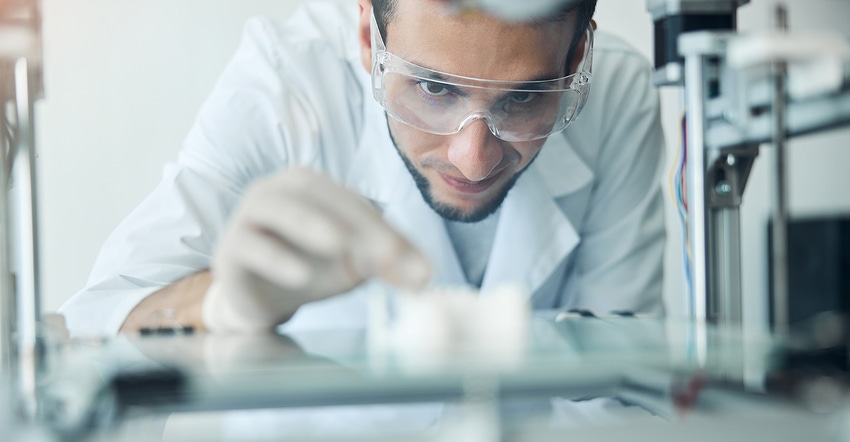The bioresorbable 4Degra material developed by 4D Biomaterials can be printed in an open-cell honeycomb structure for medical implantable devices that gradually erode as natural tissue grows back.
July 30, 2021

University spinout company 4D Biomaterials, based in Nottingham, UK, has raised £1.6 million ($2.2 million) in a new funding round led by DSW Ventures. The funding will be used to further develop the technology for 3D-printed bioresorbable implants developed by Professor Andrew Dove’s research group at the University of Warwick and University of Birmingham over the course of 15 years.
4Degra, reportedly the only 3D-printing material of its kind that is also bioresorbable, can be printed to the exact shape required in the form of an open-cell honeycomb structure. It is suited for a range of medical applications, including tumor removal in breast cancer patients. As natural tissue grows back through the voids, the structure gradually erodes and is expelled harmlessly by the body, explained the company.
The patented range of polycarbonate-urethane-based 3D printing resin-inks offer important advantages in medical applications over the next best alternatives, according to 4D Biomaterials. The material’s degradation products are non-toxic and their properties can be tuned to suit a range of tissue-regeneration applications, said the company.
In addition to refining the technology, the funding will be used to develop products in partnership with medical device OEMs. The company also plans to create five new positions.
4D Biomaterials was spun out of the universities last year and appointed entrepreneur Phil Smith, who has a track record in university spinouts, as its CEO.
“The raise was oversubscribed by 60%, helped by the continuing support of [existing investor] SFC Capital and our angel investors,” said Smith. “This puts us in a strong position as we move into the next phase of taking our products to market.”
This is the seventh investment in the portfolio for UK regional venture capital company DSW Ventures. The funding round was backed by the Midlands Engine Investment Fund (MEIF) Proof of Concept and Early Stage Fund, which is managed by specialist asset manager Mercia. The MEIF project is supported financially by the European Union.
“4D Biomaterials is pioneering a new generation of degradable materials for medical devices that offer benefits for patients and the health service alike,” commented David Baker of Mercia. “Not only could they speed up healing, but also eliminate the need for follow-on surgery, whether for tissue reconstruction or to remove permanent implants. The funding will enable the company to find partners worldwide.”
About the Author(s)
You May Also Like




